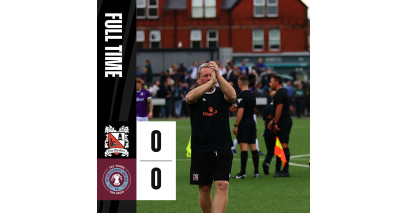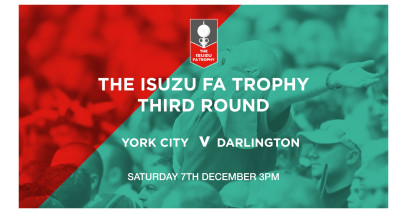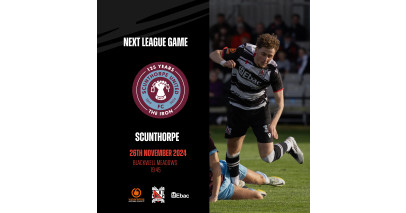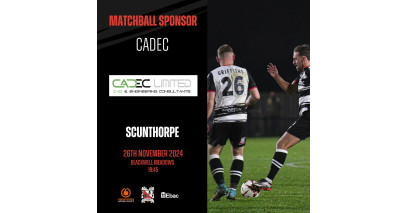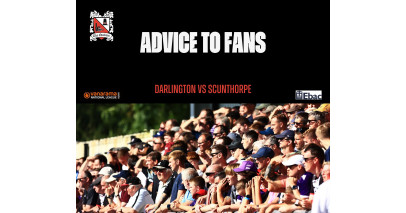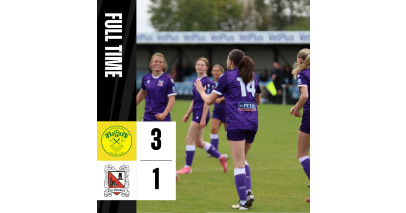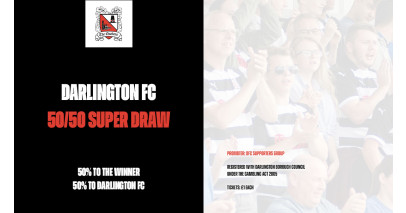Memory Match -- Scunthorpe 1974
By Ray Simpson
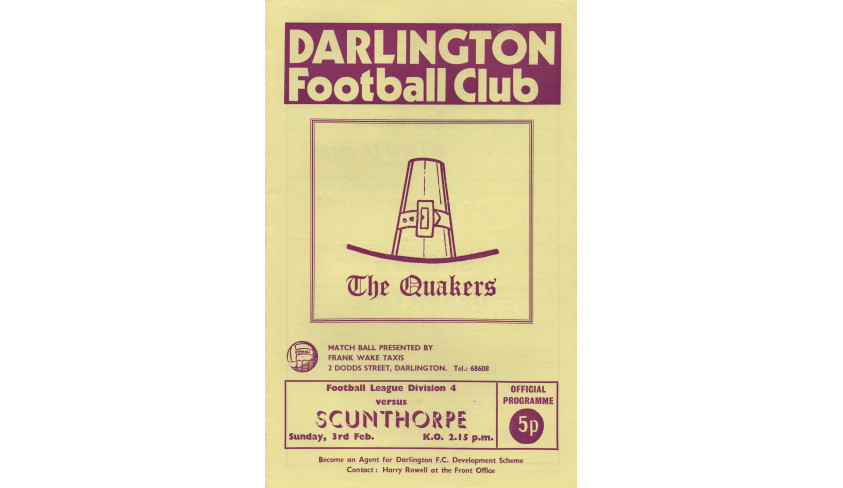
Down memory lane with Simon Weatherill
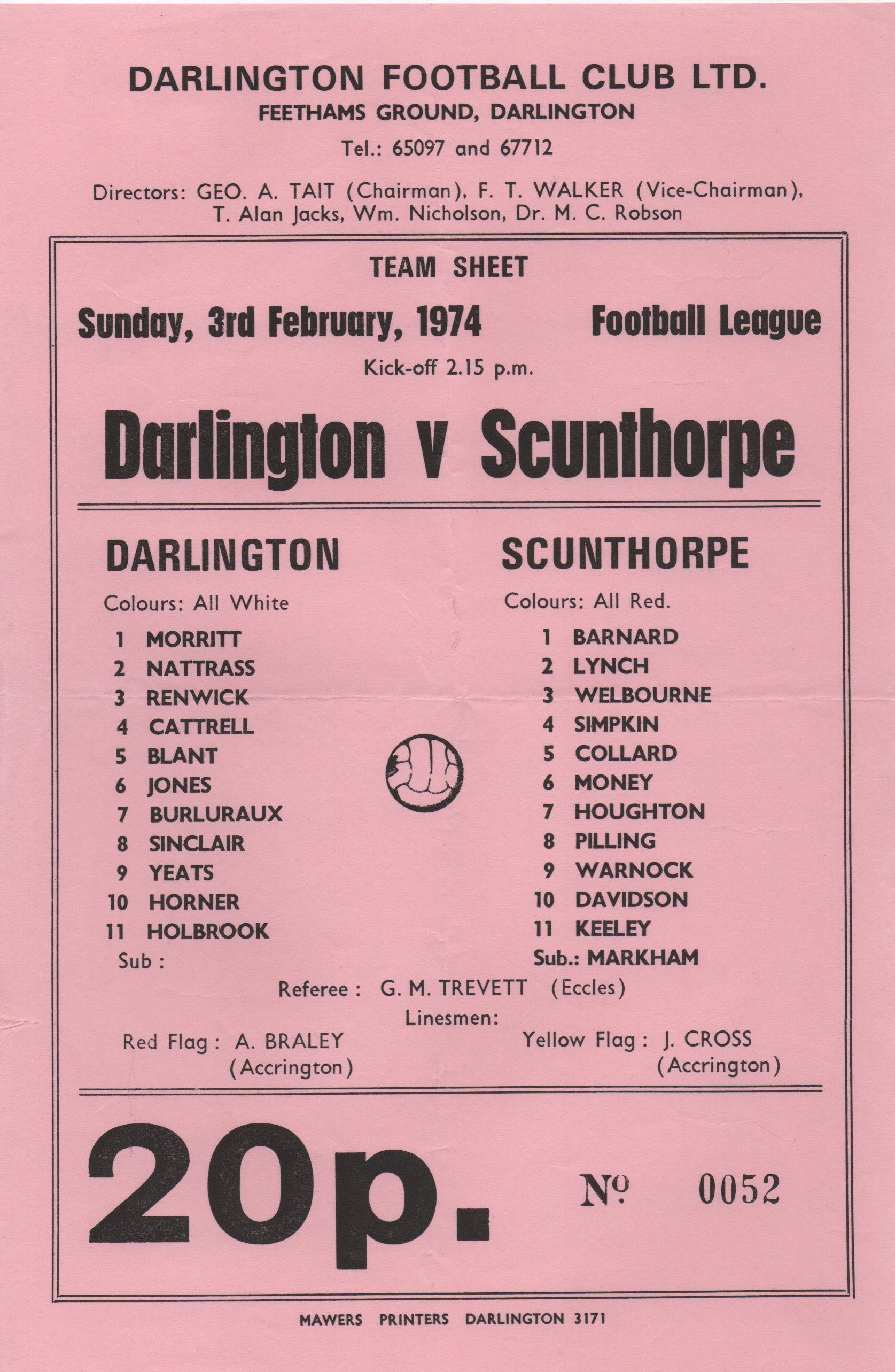
Simon Weatherill continues his excellent Memory Match series with the 3-0 home win over Scunthorpe United on 3rd February 1974.
Dick Connor was appointed manager of Darlington in the summer of 1973. Connor had the unenviable task of reversing the fortunes of the Quakers, who had just suffered their worst season ever. They had finished the 1972/73 season rock bottom of the Football League with 29 points. In 46 league games they had managed only 7 wins and scored only 42 goals, both statistics their worst ever as a league club. Supporters voted with their feet and the average Feethams attendance was 1697, the lowest in the club’s history. The application for re-election was too close for comfort. They polled only 26 votes (the lowest successful total since the war) and were perhaps fortunate that the non-league clubs that they were up against were competing with each other and had split the vote. (Yeovil got 14 votes, Kettering 12 and Wigan 10.) Had the non-league applicants been better organised and only put forward one candidate, Darlington’s application may not have been successful. They daren’t take that risk again!
The 1973/74 season became another long struggle to stay away from the bottom positions in the league table. The team only scored nine goals in its first fifteen league games and it was November 10th before they managed two goals in one game. The shortage of goals wasn’t helped when the previous season’s top scorer Peter Graham was sold to Lincoln City at the end of September. Darlington only managed five wins in their first 28 games and not surprisingly found themselves second bottom in the table at the end of January. Their next opponents at Feethams would be Scunthorpe United on February 3rd. Darlington had 20 points and Scunthorpe were four points better off but had a dreadful away record of one win and one draw from 12 games, so the Quakers saw it as a great opportunity to grab two points. Connor had recently strengthened his defence with a double signing from Rochdale. Centre half Colin Blant and left back Dick Renwick would both be making their third appearances for the club. Midfielder Gordon Cattrell and centre forward Bill Atkins would both miss the game through injury. Their places went to Norman Lees and Billy Yeats.
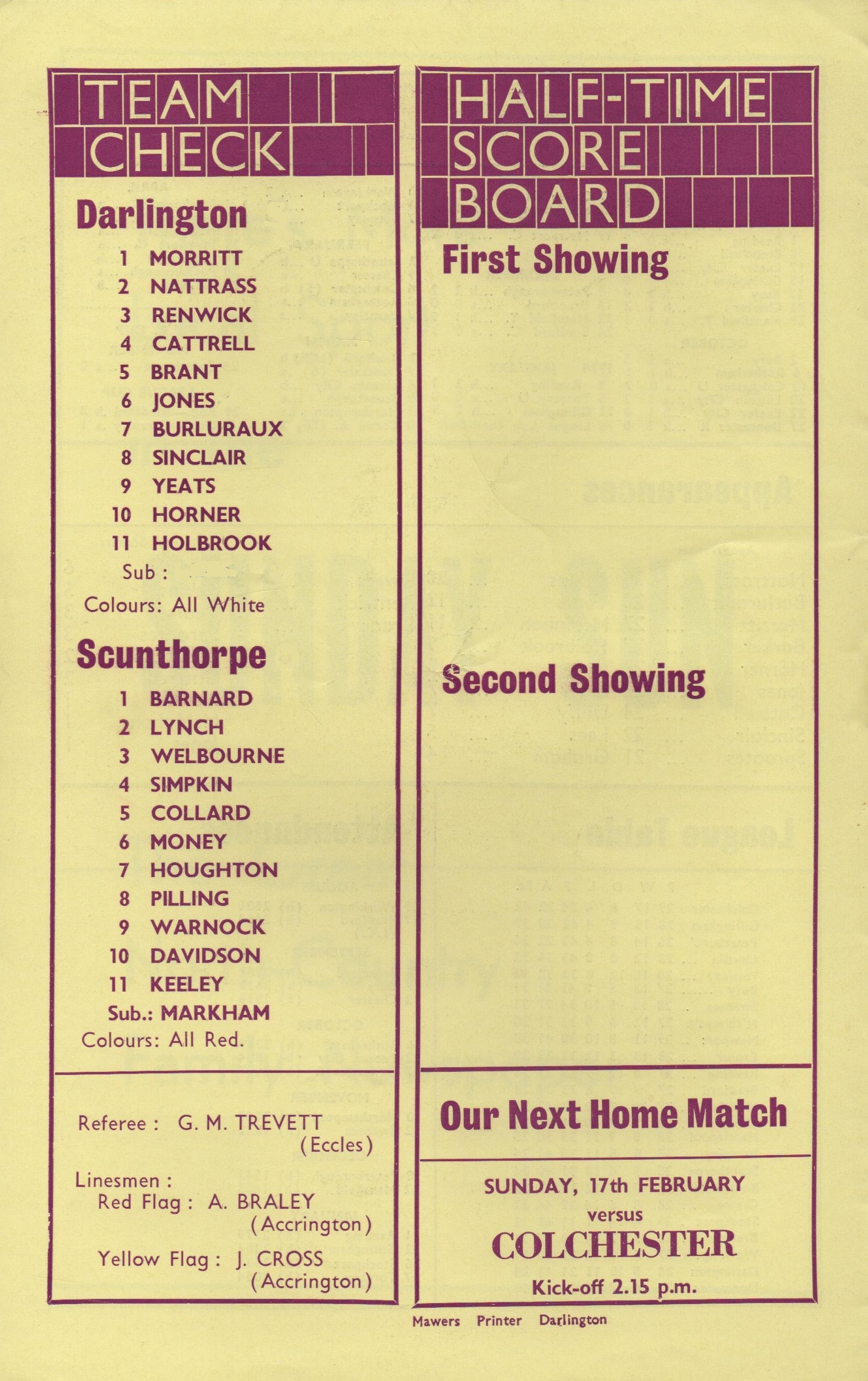
Away from football, the winter of 1973/74 became known as the “winter of discontent”, a time of power cuts and the three day week. Games under floodlights were banned because of electricity shortages, so football experimented with Sunday games for the first time and Darlington switched four home games to Sundays. The Scunthorpe game would be the second of these. The previous weekend had seen the Quakers play two home games, against Stockport (1-1) on the Saturday and against Torquay (0-0) on the Sunday. The experiment with Sunday football virtually doubled the attendance. 1533 on Saturday compared to 3054 on the following day. Darlington were hoping for another good crowd against Scunthorpe.
Their hopes were realised as another healthy crowd of 3006 turned out for the 2.15 kick off. They saw the Quakers make a strong start and control the game from start to finish. Visiting keeper Geoff Barnard was in fine form and single handedly kept the home side at bay. In the early stages he punched a goal bound Colin Blant header over the bar, scrambled to smother a deflected Steve Holbrook shot and parried well from a Colin Sinclair piledriver. Scunthorpe couldn’t deal with the strong running and pace of Don Burluraux and Sinclair. A goal had to come and the only surprise was that it took 39 minutes to arrive. A long cross by Dick Renwick just evaded the best efforts of Billy Yeats at the near post, but Burluraux met it at the far post and slid it past Barnard. Half time: Darlo 1 Scunny 0.
The one way traffic continued in the second half with Quakers keeper Gordon Morritt a virtual spectator. Billy Horner had a shot cleared off the line by United full back Barry Lynch, then Yeats just failed to connect with another great Renwick cross. The home side lost Holbrook to a knee injury on 59 minutes but if anything, that strengthened the Quakers as substitute Alan Duffy took control of the midfield and started spraying passes around. One superb cross to the far post was met by Yeats but he headed narrowly wide into the side netting. Then, on 65 minutes Duffy played a long, raking pass into the path of Sinclair who was brought down by Chris Simpkin as he broke into the box. Gordon Jones stroked home the penalty. Darlington continued to look for more goals. Burluraux cracked in a stinging drive that Barnard did well to hold, then Sinclair hit a shot on the turn that went just wide. Duffy smashed a 20 yarder that went just over the bar then Barnard made a brilliant reflex save from a point blank Sinclair header. The Quakers completed the scoring in the final minute. The hard working Yeats created an opening for Norman Lees who burst through and smashed a shot in off the post from just outside the box.
The 3-0 win lifted the Quakers two places in the table and raised hopes of escaping the dreaded bottom four. They left it late though! A 4-2 win at home to Barnsley on the last day of the season ensured that they finished fifth from bottom, one point clear of Crewe.
The programme for 73/74 consisted of 12 pages (of which half were adverts) and cost 5p. There was very little half time reading material. Contents included Dick Connor Says, Personality Spot (featuring one of the first team squad), Quaker Action, pen pictures of today’s opponents and referee, and a page of statistics (results, appearances, attendances and a league table). The team line-ups and half time scoreboard appeared on the back page. There was also a team sheet produced for the game. Officially, charging admission wasn’t allowed on a Sunday, so the club charged their usual admission price for a team sheet at the turnstile (45p adults, 22p juniors) which gained you entrance to the ground.

Team v Scunthorpe: 1 Gordon Morritt 2 Clive Nattress 3 Dick Renwick 4 Norman Lees 5 Colin Blant 6 Gordon Jones 7 Don Burluraux 8 Colin Sinclair 9 Billy Yeats 10 Billy Horner 11 Steve Holbrook Sub Alan Duffy (replaced Holbrook, 59 mins).





